In this article, we will discuss top 10 ethereum wallets.
2017 was the year that witnessed the ICO boom. During this time, there was an unpredictable and irregular rise in the number of ICOs, tokens, and cryptocurrencies being developed and listed every day. Amongst all the cryptocurrencies, Ethereum is one altcoin that had seen exponential growth uptill early 2018, for various reasons. But since the ATH, there has been a constant fall for all the cryptocurrencies, including Ethereum. So, if you had bought ETH before the boom & exited before the fall then it’s alright. But, if you are stuck with the falling prices then you must be wondering where to keep them since keeping your tokens on exchanges is an extreme risk!
Ethereum is an open-source, public; blockchain based distributed computing platform and operating system featuring smart contract functionality. Ether is a cryptocurrency whose blockchain is generated by the Ethereum platform.
Here is a list of the top Ethereum wallets that you can access in order to go through with your investment decisions.
Top 10 ETH Wallets
1. Trezor:
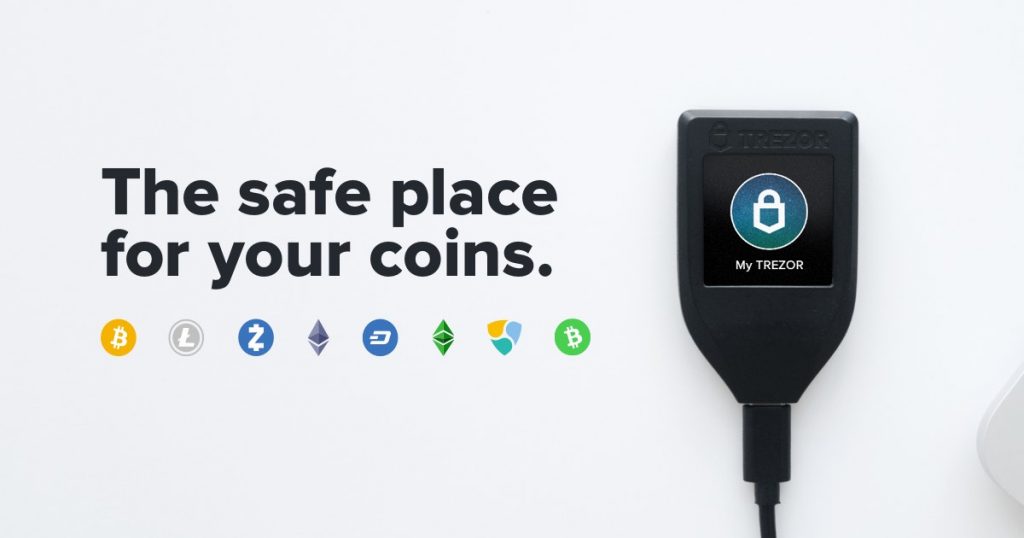
Trezor is a hardware wallet that supports more than one cryptocurrency including Bitcoin, Ethereum, Litecoin and many more. Along with the features of a wallet, Trezor supports two-factor authentication, can be used to store passwords and is also designed to function to sign documents and other files as proof of ownership.
Designed with the intention of removing elements that are easily hackable, Trezor is a light and portable device that is also durable and water resistant. In addition, this device comes with a feature that allows you to regain access to your emails, accounts, keys, money, etc. with the help of a secret word. Trezor comes with a built-in display. This allows you to review transactions. It is available in three colors- black, grey and white. Terzor is valued at around $99.
2. Ledger Nano S:
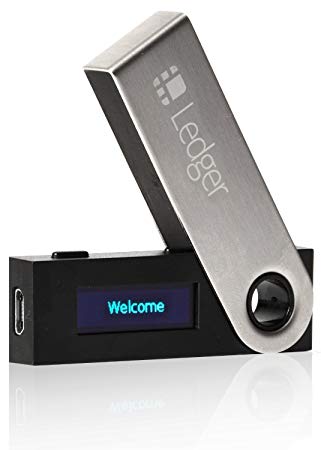
With the feature to support multiple addresses for each currency with the help of a single device, the Ledger Nano S is a popular Hardware cryptocurrency wallet that supports Ethereum, Bitcoin, Litecoin and various other altcoins. This device uses a PIN and a physical button in order to confirm transactions. This makes the wallet extremely secure against malware.
Ethereum coins are stored offline on the device, and every time you wish to spend them, the Nano S signs it using the private key stored in the device. With the help of a built-in display, users can easily keep track of transactions and make checking and confirmation easier for them. Since this device supports Ethereum out-of-the-box, it eradicates the need for custom software and third-party plugins.
3. Jaxx:
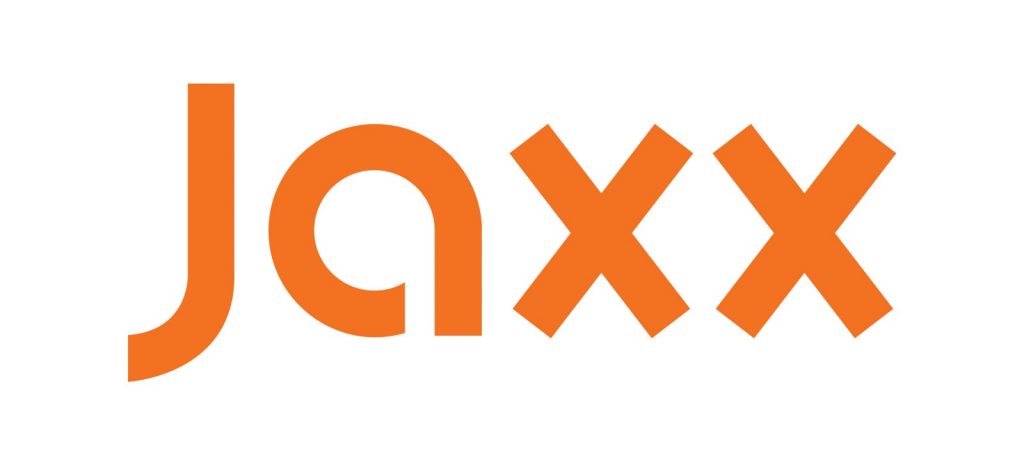
Created by the Canada-based company Decentral, Jaxx is a multi-asset mobile wallet with the capability to support thirteen cryptocurrencies including Ethereum. Jaxx has a stylish design and an impervious security feature, Jaxx allows its users to access their wallet without the need for any form of verification.
Accessible on all platforms like Mac OS, Linux, Windows, and Android, Jaxx has a fantastic development community that oversees the maintenance and innovation of the wallet. Jaxx also assures that your private keys are safely stored on the machine. Your information will never be shared with Jaxx’s server. It should also be noted that Jaxx plans on launching a hardware wallet very soon.
4. Exodus:
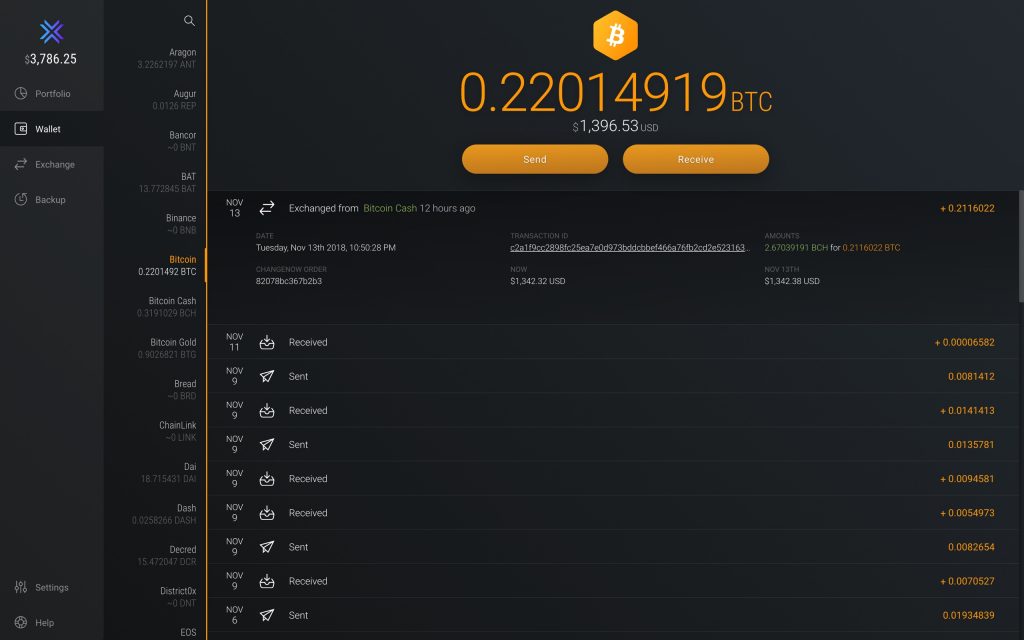
The world’s first multi-cryptocurrency desktop wallet, Exodus is also the first desktop wallet to have ShapeShift built-in in order to exchange cryptocurrencies. While Exodus needs an internet connection to function, the company assures that your private key will never leave the machine.
When it comes to the design, it has a very intuitive interface, and users are greeted with a pie-chart showing the entire portfolio of their coins as soon as they log in. The user-friendly UI doesn’t take too long to get used to and can be used by crypto experts as well as beginners. Security of your funds is ensured with features like one-click email recovery and seed keys to restoring your wallet.
Built for Windows, and Linux, Exodus has been programmed to support seven cryptocurrencies including Ethereum and Bitcoin.
5.MetaMask:
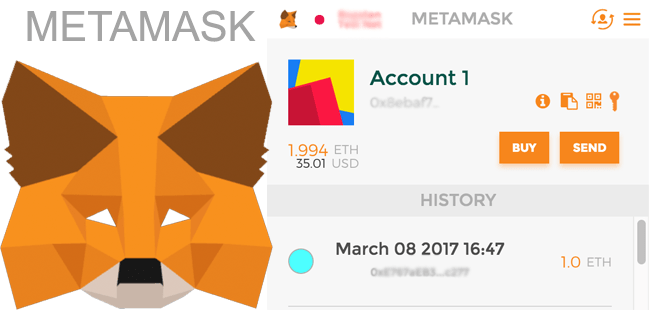
Built for Firefox and Chrome extensions, MetaMask not only enables you to store and send Ethereum but also allows you to access decentralized Ethereum apps., MetaMask makes it easy to switch between the main Ethereum network and a test network with their instinctive design.
This wallet doesn’t require any form of registration or personal information. As for the private key, they are stored in your machine and are password encrypted. Private keys stored on your machine can easily be exported at any time.
6. Mist:
Mist is a wallet client that supports multi-signature addresses. Mist is also the official Ethereum wallet. In order to be able to use this wallet, you need to download the entire Ethereum blockchain which can be an issue for people who are low on hard disk space. Once Mist is installed, the initial startup will take time because the software has to synchronize with all the Ethereum nodes. Once the synchronization is completed, you will be prompted to set a secure password. Make sure that the password you set is not too complicated because if you end up forgetting your password, you have no other method to access Mist.
Available on Windows, Linux, and Mac, Mist saves your private key on the device itself, thereby assuring your safety and security.
7.Coinbase:
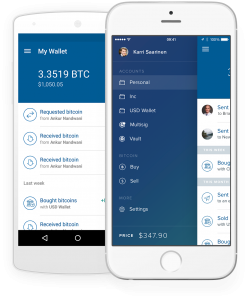
Serving up to 8.2 million customers in more than 32 countries, Coinbase is one of the most popular Bitcoin web wallets.
Offering multi-signature support, instant currency conversions, and recurring investments, Coinbase is a quick and economical way of storing Ethereum. Coinbase has applications that are available on Android as well as iOS.
8. MyEtherWallet:
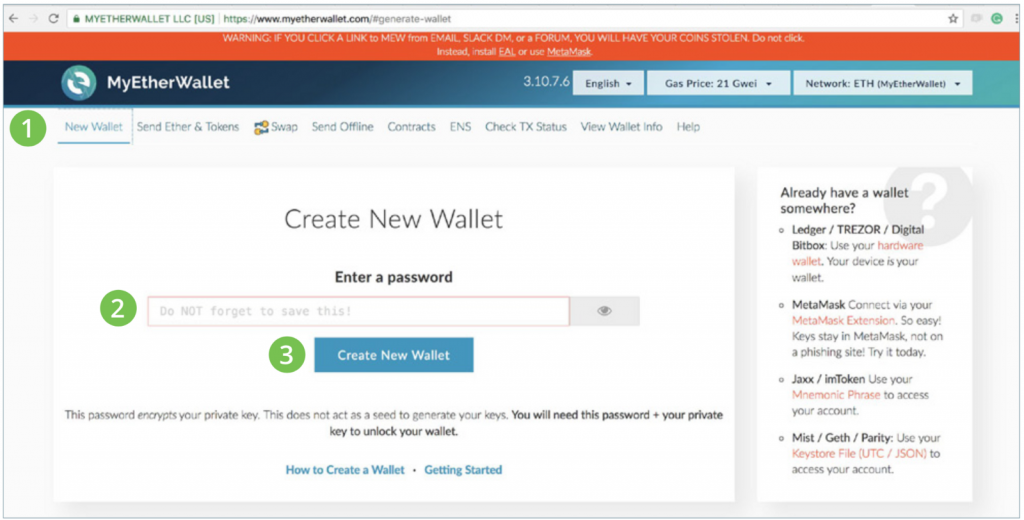
An open-source client-side wallet. MyEtherWallet does not depend on third-party apps. Since all the activities take place on the user’s computer, MyEtherWallet will always be accessible. Secure paper wallets can be created by users for Etherum holdings by using MyEtherWallet offline. With an In-built BTC to ETH or ETH to BTC swap facility, MyEtherWallet also has a feature of connecting your Ledger Nano S or Trezor device in order to access your funds in MyEther’s browser environment.
9. Keepkey:
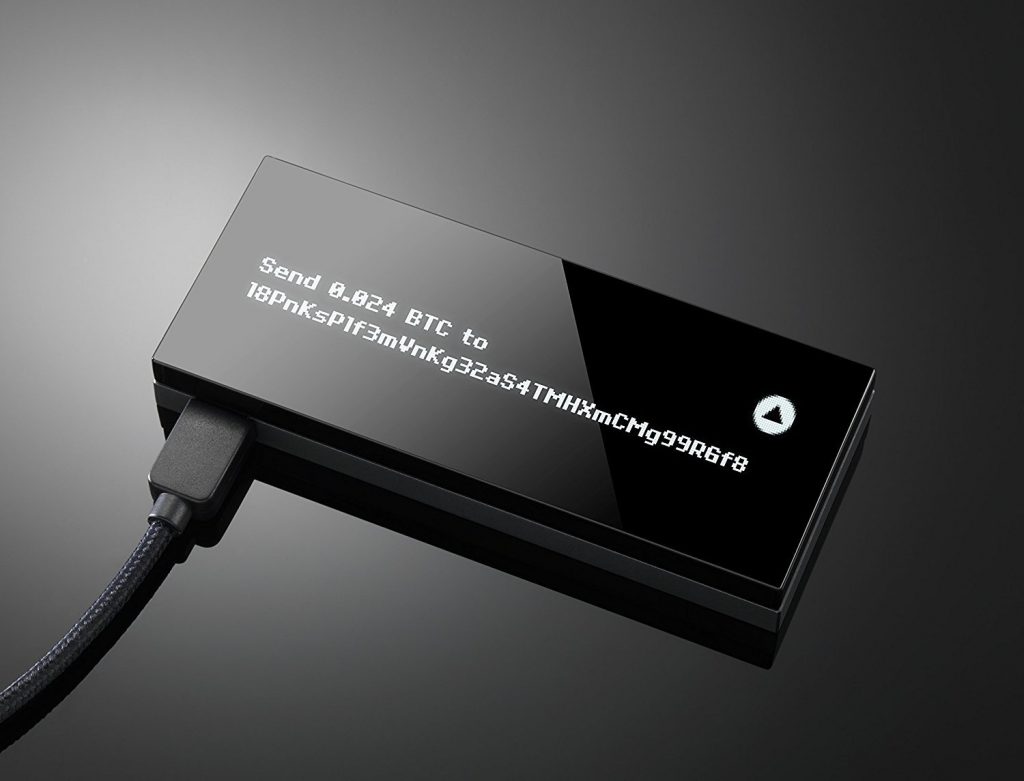
Priced at $120, Keepkey is the costliest hardware Ethereum wallet available. Sporting a sleek design and a larger, well-illuminated screen, Keepkey supports many significant coins including ETH and BTC and works on major operating systems like PC, Android, Mac, and Linux.
Keepkey also has an additional feature of direct exchange of assets thanks to ShapeShift.
10. ETHAdress:
Printed out for usage in cold storage, ETHAdress is an open-source project used to create Ethereum paper wallets.
Paper wallets contain information related to your public and private keys, printed on paper. You can store this information in a safe place and protect yourself from the risk of getting hacked.
For additional privacy, you can encrypt your private keys. Hence, in order to decrypt and use it, others will have to know the password.
Being the cheapest form of cold storage available, ETHAdress is an Open-source javascript client-side Ethereum wallet that supports brain wallets, bulk wallets, split wallets, vanity wallets, and single wallets.
Now that you know the various types of wallets available, you can go ahead and choose an option best suited for you, be it a hardware wallet, mobile wallet or a desktop wallet. All you have to do is pick one, fill in the required credentials, follow the on-screen steps and you’re good to go.
Must Read Top 5 Ripple Wallets

Tusshar is a blockchain enthusiast & cryptocurrency trader since 2016. He has been an active part of the community while also covering the latest news and updates in the space through his crypto media portal. Apart from this, he runs a digital marketing agency where he consults multiple small & large businesses with their online branding & digital strategy.
Subscribe to get notified on latest posts.




























